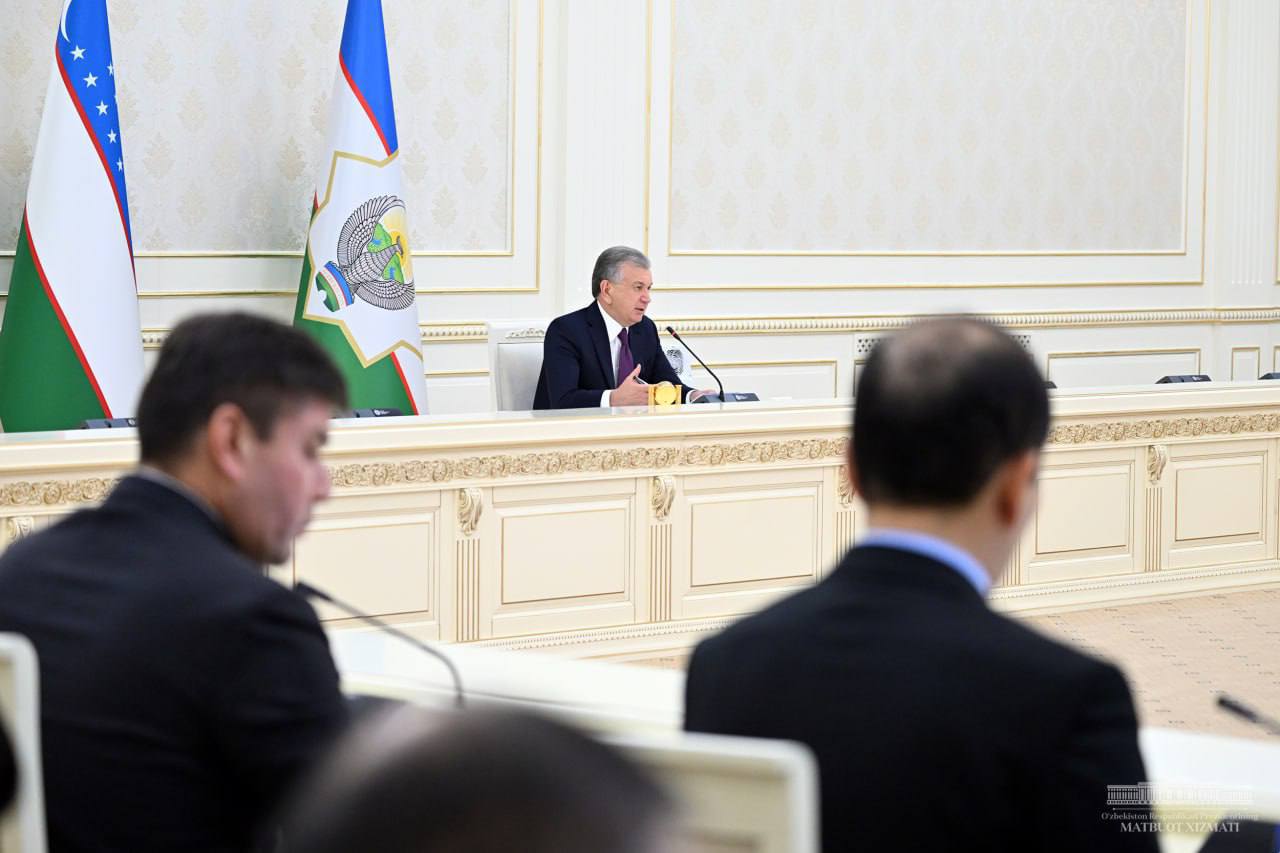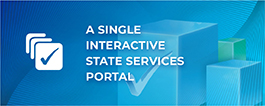
The Government portal of the
Republic of Uzbekistan
Priority tasks defined to improve the quality of education in schools
2023-08-29 | Education
On August 28, President Shavkat Mirziyoyev chaired a videoconference on the priority tasks of improving the quality of education, increasing the number of student places in schools, and supporting teachers.

Based on the noble idea “New Uzbekistan begins from school”, large-scale work is being carried out in the sphere. Hundreds of modern schools have been organized in recent years. An entirely new type of school has been created – Presidential Schools and Creativity Schools, and the network of specialized schools has expanded. New textbooks and teaching aids have been developed.
The primary attention is paid to improving the working conditions of teachers and mentors and improving their qualifications. In particular, over the past period, teachers’ salaries have increased by an average of 2.5 times.
An allowance was introduced for teachers with national and international certificates in a foreign language, information technology, mathematics, chemistry, and biology, as well as a special fee for teachers who came to work in remote areas. As a result, the number of teachers who receive salaries from 6 million to 10 million UZS has reached 23,000, and the number of those who receive wages over 10 million UZS has exceeded 1,000.
To reduce the burden on schools, 700,000 new student places were created. This is 15 times more than in previous years. Enrollment in higher education has quadrupled, which has expanded young people’s access to it.
At the same time, there are still many urgent problems in school education.
Today, 11 subjects are taught in elementary and 16 in senior grades. But students leave school without deep knowledge in a particular area.
Last year, the knowledge and skills of 86,000 or 37 percent of the 220,000 teachers were rated as “unsatisfactory”. The situation is especially alarming among computer science, English, physics, mathematics, and chemistry teachers – subjects that are now in great demand.
Over the past six and a half years, housing for 320,000 apartments has been built in the country. But no schools of adequate capacity were built. There is a demand for 350,000 student places in new neighborhoods and mahallas. There is also much work to be done to improve the infrastructure of existing schools.
In recent years, 350 private schools have been organized for 70,000 places. However, in many regions, work on developing the private sector of school education is insufficient.
Analyzing these indicators, the Head of state announced new initiatives to improve the content and conditions of school education.
First of all, to improve the quality of education in 500 schools in the country, curricula and an assessment system for Presidential and specialized schools will be introduced. In a year, the work of these 500 schools will be reviewed, and teachers who effectively use the new system will receive bonuses of up to 40 percent. This system will be introduced in all schools in the next five years.
This year, 500 native speakers were invited from abroad to teach in schools. In the future, their number will increase. In this regard, hokims were instructed to resolve the housing issue for foreign teachers.
The number of subjects taught in the senior grades will be reduced from 16 to 11. At the same time, students in grades 10-11 will be taught in-depth pairs of subjects “chemistry – biology”, “mathematics – physics”, “mathematics – a foreign language”, and “native language and Literature – a foreign language” of their choice.
Schoolchildren who wish to acquire a profession will have the opportunity to become ready-made specialists at the school itself. At least 1,000 schools will be transferred to this system from the next academic year.
The content of the lessons will also change. Computer literacy classes will be introduced from the 1st grade, and financial literacy classes from the senior classes.
Most importantly, introducing new subjects into the curriculum will be prohibited. All new offers are now subject to integration into existing subjects.
The President paid particular attention to improving teachers’ qualifications and creating decent conditions for them.
The system of hiring teachers, improving their qualifications, and assigning categories will be changed entirely. In particular, the recruitment of teachers will be carried out competitively. First-time applicants must have served as a trainee teacher for 1 year and receive a professional certification at the end of the year. In the future, this system will be gradually introduced for all teachers.
The qualifications of teachers will also be improved in a differentiated manner. So, before advanced training, the teacher’s knowledge will be diagnosed, and based on the results, individual areas of professional development will be determined. Universities that have trained teachers with low results will receive a complaint. That is, the results of teacher diagnostics will also be an assessment of the performance of pedagogical universities.
In this regard, the task was set to critically study the activities of regional centers for advanced training, repair, and equipment.
The assignment of a qualification category to teachers will be carried out in two stages. In the first stage, the teacher’s knowledge will be assessed at the preliminary exam, and those who scored more than 70 percent of the points will go to the second stage. In the second stage, advanced pedagogical technologies, methods of working with students, and approaches to knowledge assessment will be tested.
The Ministry of Preschool and School Education has been tasked with testing this system in 20 districts with low teacher knowledge.
Higher pedagogical educational institutions will develop based on a special approach. At Tashkent and Chirchiq Pedagogical Universities, specialists will be trained based on the program of the Presidential Schools. These institutions will become the base for pedagogical universities.
Schools with a staff shortage in a problematic situation will be selected before the next academic year, and a targeted state order will be introduced to meet their needs.
The management system of school education will also change. Now, candidates for the director position will be selected only from among the staff with a certificate in the reserve. They will be hired based on a fixed-term contract. Directors and their deputies will be assessed every five years.
Another relevant issue in the sphere is the increase in school enrollment.
Next year, within the framework of the Investment Program for the construction of schools, it is planned to allocate 3 trillion UZS. Due to this, 150 thousand new student places will be created.
New schools will be organized based on buildings of 61 colleges operating at part capacity. Another 50 schools will be built based on public-private partnership.
By creating additional conditions for the private sector, organizing at least 25,000 student places per year will be possible. To this end, entrepreneurs who have received a loan to organize a private school will receive compensation from the budget at 7 percent of the loan rate. Plots for the construction of new schools will be auctioned only for the construction of a school.
It was noted that, in general, due to these measures, 250,000 student places will be created next year, which is two times more than last year.
Responsible persons were tasked with funding these activities, building and equipping schools, and preparing institutions for the autumn-winter season.
The issue of employment of graduates was also raised. This year, 387,000 children graduated from school. Of these, 138 thousand entered universities.
The Head of state noted the need to involve other graduates in professional education and support their interests and entrepreneurial initiatives. The tasks for teaching young people modern professions that allow them to receive a significant income at a low cost have been defined. The task was set to establish targeted work with schoolchildren, specifically determining the responsibility of hokims, school directors, and parents in this process.
As is known, three years ago, the practice of distributing iodine preparations, vitamins, and anthelmintic drugs to children under 15 was introduced. As a result, thyroid disease incidence, which affects children’s physical and mental development, began to decrease. In this regard, the need was noted to continue the free distribution of iodine preparations to students and to promote the beneficial properties of iodine among the population widely.
At the meeting, the President addressed all teachers, school directors, and their deputies.
– Dear teachers, I consider you my closest assistants in the implementation of our reforms in school education. The result of the measures taken to improve school education further depends primarily on you and your selfless work.
I see in you people who have dedicated their lives to the world’s most significant and noblest cause – the education of a new generation, people dedicated to their profession. Millions of our children whom you bring up today, filling their hearts with kindness and knowledge, tomorrow will join our ranks of the creators of New Uzbekistan. Our country and people will never forget your noble merits. Honoring the teaching profession and recognizing its work will continue to be at the center of our attention. In our renewed Constitution, we have strengthened the status of teachers. And in the future, we will carry out large-scale activity on this basis, – Shavkat Mirziyoyev said.
Ministers, hokims, and other responsible officials presented reports on the tasks set at the meeting.
Source: UzA









